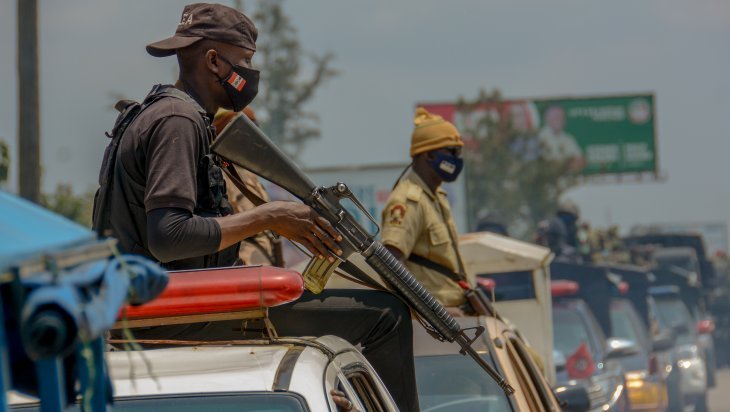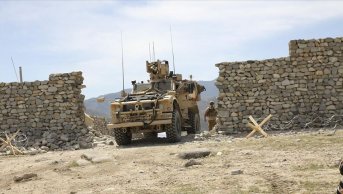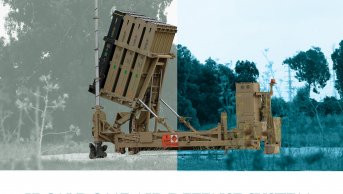Rising Boko Haram Activity in Nigeria and Potential Outcomes

Originating from Nigeria, Boko Haram maintains an active profile particularly in Niger, Nigeria, Cameroon, and Chad. It has put itself and its region on the crosshairs of a global war on terrorism due to its connection with ISIS in recent years. Officially known as Jamā'at Ahl al-Sunnah lid-Da'wah wa'l-Jihād (in short, the Nigerian Taliban or Yusufiyah) is actually known as Boko Haram, which means “Western/Latin education is forbidden” in the Hausa language, for its religion-based opposition to western-style education. The main powerhouses of the organization are Yobe and Born situated in the north of the country. These regions, which are the least developed regions in terms of income per capita, suffered the most from the devastation caused by the IMF program followed during the rule of Ibrahim Babangida (1986-1993). Yobe is of special importance for the organization for two reasons; it is the birthplace of the group’s founder Muhammad Yusuf and it is the place where the first attacks of the group against the police took place. Kano and Bauchi are other important centers that feed the organization. The Salafist-Wahhabi ideas boosted by the Gulf petrodollars in the 1990s played a significant role in the emergence of Boko Haram. While the Iran-backed Shiite Islamic Movement of Nigeria led by Ibrahim Zakzaky was the organization, where Boko Haram’s first cadres were trained, it was also a major factor that triggered reactions that led to the emergence of Boko Haram. Therefore, one of the most important factors behind the emergence of Boko Haram in Nigeria is the efforts by Iran and Saudi Arabia to proselytize their way of religious thinking and to acquire proxies in accordance.
Boko Haram’s activity has risen constantly since the beginning of the 2000s and it has been called “Nigerian Taliban” or “Black Taliban”. The most important breaking point in its history was the heavy counter operations by the Nigerian security forces in 2009 which led to the loss of its eight hundred militants. During the operation and in the ensuing imprisonment periods, Mohammed Yusuf, the leader of the organization, who was subjected to a lawsuit for terrorism charges between 2006 and 2008 but not sentenced to prison, Buji Foi, the financial mastermind of the group and Mohammed Yusuf’s father-in-law al-Haji Baa Fugu Mohammed, whose ties with the group remain contested, lost their lives.
The deaths of these three figures under custody and in an unlawful manner were the most critical factor that triggered Boko Haram to adopt a more aggressive attitude under the leadership of Abu Bakr Shekau. The brutal videos about execution of Muhammed Yusuf were leaked or rumor says, those were deliberately uploaded in the public domain which ended up igniting the atmosphere of ‘revenge’ further more. Not only that, it also triggered the uprising activism. During the period of ‘revenge’ that started in 2010 with the attacks in Jos and Maiduguri, one of its most important attacks was the raid at the Bauchi prison that set approximately seven hundred militants free. This attack brings to memory that it is quite similar with the prison raids that ISIS conducted during its rise in Iraq. The increasing capacity of the organization under the leadership of Shekau is linked to both the funds and the know-how retrieved from al-Qaeda or its affiliates. The impact, targets, and methods of the attacks after 2011 demonstrate the increase in capacity. In 2011, a vehicle-based suicide attack against the United Nations building in Abuja was one of Boko Haram’s most high-profile attacks up to that date. Abducting people is one of Boko Haram’s favorite and most frequently employed tactics after 2012. The group is particularly involved in kidnapping women and children, an element that has been frequently observed in the news about both terrorism and counter-terrorism activities in Africa. Boko Haram’s mass abduction of people in 2014 has put the group in the spotlight and an international campaign attempted to free 276 kidnapped girls. These girls, who were kidnapped in the town of Chibok in Nigeria, are called the Chibok Girls and more than a hundred of them are still not liberated. The group stated that abduction tactics constitute reprisal against the practices by the Nigerian securities that involve the abduction of wives and children of militants. It also underlines the fact about the breach of legality frequently observed in counterterrorism practices in Sub-Sahara. Even though the government of Muhammadu Buharu in Nigeria boosted counter-terrorism efforts in the region after 2015, Boko Haram maintained its existence and has since expanded further.
Having gained international notoriety with the Chibok Girls incident, Boko Haram has declared allegiance to ISIS in March 2015 thereby drawing the attention of the US-led Global Coalition on itself. More than twenty thousand people were killed in the Boko Haram attacks since 2009, and after 2015 operations against the organization intensified. The military operations launched by Benin, Cameroon, Chad, Niger, and Nigeria in the years between 2016 and 2017 were supported by the Obama administration’s decision to deploy three hundred soldiers in Cameroon and reinforce its presence in Niger.
Boko Haram has also played an important role in the attack against the military base in Burkina Faso assumed by ISIS in December 2020 that killed seven soldiers and thirty-five civilians, and in the execution of eleven civilian Christians in Nigeria. The group was also assumed to take responsibility for the abduction of forty children in Nigeria in December 2020, although its truth is contested. Having experienced its most active period of the last 10 years in Nigeria in 2020, Boko Haram continues its attacks in 2021, causing hundreds of civilian and military deaths.
Boko Haram’s attacks started in the first days of the year and became even more violent on January 11, when five Nigerian soldiers were killed, and seventeen soldiers were wounded. At the same time, six militants were killed during the clashes in Borno, one of the provinces where Boko Haram is the strongest. Minelaying is another assault method of Boko Haram and five Nigerian soldiers were killed by landmines in Chibok, in the province of Borno. At least twenty civilians were killed when Boko Haram attacked civilian targets in Dikwa, Borno on February 19. Boko Haram expanded its inventory over the years and continued devising new assault methods. In connection with this, rocket launcher attacks, which reduce the casualties of attackers but cause much more deaths than armed attacks, have also come to the fore as one of these methods. In a rocket launcher attack on February 23 in Maiduguri, Borno killed ten people and wounded at least fifty. With 13.2 million children, Nigeria is one of the countries where the highest number of children lacks access to education according to the UN Children's Fund (UNICEF) data. Although there are numerous other reasons, terrorism is seen as one of the leading reasons. As mentioned above, kidnapping women and children is a widespread terrorist activity. Although Boko Haram does not assume responsibility for all abductions, its involvement with these incidents is well -known thanks to confessions by old militants. Boko Haram commits mass abductions by collaborating with local thugs or on its own and aims to acquire ransom, recruitment, or other benefits. Most important of all, it seeks to distract security forces and thus maintain a breathing space for itself. The biggest abduction incident up to now took place in February 2021, when 279 schoolgirls were kidnapped from a middle school in Zamfara, in the northeast of the country. Frequent abductions in Nigeria have cornered families and officials in a hard position between the burden of keeping up education activities on the one hand and the risk of kidnapping on the other. Therefore, a total of 618 schools in six provinces were shut down due to fear of kidnapping. On March 1, 2021 twenty-five UN humanitarian aid workers were ambushed during the attack on a UN facility in Dikwa in the northeast of the country and militants opened fire on the military camp that was established for protecting the facility. The humanitarian aid facility was rendered completely unusable after the attack. On March 11, Boko Haram militants ambushed the Civilian Joint Task Force (CJTF) officials in Borno and killed a high-ranking commander and some soldiers. The name of the commander is revealed to be Yusuf Baba Idris, who was the secretary -general of the Kukawa government of the Borno province and a member of the local council for several terms. Since March 10, at least twenty-seven Nigerian soldiers and ten CJTF members have been killed by Boko Haram, the West African branch of ISIS. The responsibility of the attack, which took place in Monguno on Friday, March 12, was assumed on ISIS's publication of Amaq on Saturday.
In this general perspective, one can claim that the most active period for Boko Haram in Nigeria after its submission to ISIS is 2020 and the first quarter of 2021. This situation has several important reasons. First, the US policy of decreasing its military presence around the world was given the highest priority during the first two years of the Trump administration, which triggered the rise of similar groups in different regions. On the other hand, other groups that opposed US withdrawal sought to make the activity of the rising groups visible. USAID (United States Agency for International Development) transferred 450 million dollars to Nigeria in 2020. Nigeria has become one of the most important focus countries of AFRICOM. The fractures in the gravity center of ISIS after 2015 and 2016 led to the rise of Southeast Asia and Sub-Sahara as alternative focal points, among which Sub-Sahara comes to the fore with the intensity and quality of attacks. In this context, Somalia and Nigeria constitute two main security threats with al-Shabaab and Boko Haram respectively. While it’s rich oil reserves, young population, and agricultural potential make Nigeria a prospective emerging power among the MINT countries (Mexico, Indonesia, Nigeria, Turkey), the regional and global implications of Boko Haram’s activity are likely to hinder Nigeria’s potential. It is also likely that the regional security environment will miss the long-awaited recovery and regional problems will further deteriorate since Nigeria is far from achieving its potential of becoming a regional power that promotes stability. In addition to terrorism, the country’s spiral of problems further worsens considering the corruption and violence allegations made during the 2019 elections. It is also highly realistic that the presence of Boko Haram in Nigeria, which is the largest economy of Africa and one of the fastest -growing economies worldwide, will have both regional and global ramifications further beyond the borders of Nigeria. The fact that Nigeria has the most crowded population in the continent provides a perspective about possible implications for both its national security and the security of the continent in the future. Although it has major oil and natural gas reserves, it lacks sufficient infrastructure for acquiring financial benefits or for the utilization of these resources in the domestic market. According to the 2015 data, the current economic growth potential of Nigeria necessitates 2.5 trillion dollars of infrastructure investment until 2030, which also requires regional stability. Furthermore, the regional instability could be utilized while potential investors share roles in this giant market. While Nigeria is the main focus of the French influence in West Africa, it also enjoys close economic and partially political relations with both France and the USA. Therefore, it becomes the main axis of the French-US competition. Nigeria’s oil and railroad agreements with Russia and China’s increasing presence in these two sectors form a second axis and also constitute a third due to potential competition with the actors in the first axis. With its increasing economic, diplomatic, and political presence in Africa, Turkey comes to the fore as another playmaker, which has the potential to engage with all axes , enjoys already existing gravity centers and presence in the field as seen in Somalia and Libya. Nigeria also provides a potential for diversifying supply for Turkey’s energy supply security, in addition to its position as the main anchor in Turkey’s engagement with West Africa and Sub-Sahara. Since Turkey and the actors in all three axes enjoy cooperation and have limitations in different regions, the developments in Nigeria represents a peculiar character for Turkey, which it needs to follow closely for the sake of its regional profile on the one hand and for finding dimension based on cooperation or competition in its relations with all these actors. In this context, Nigeria is one of the countries that Turkey must closely follow for the Africa dimension of its foreign policy and the global fight against terrorism considering the rise of ISIS and Al-Qaeda affiliates in the continent, particularly in Somalia, the deteriorating uprising in Mozambique launched by Ansar al-Sunnah and the recent activity of Boko Haram.









